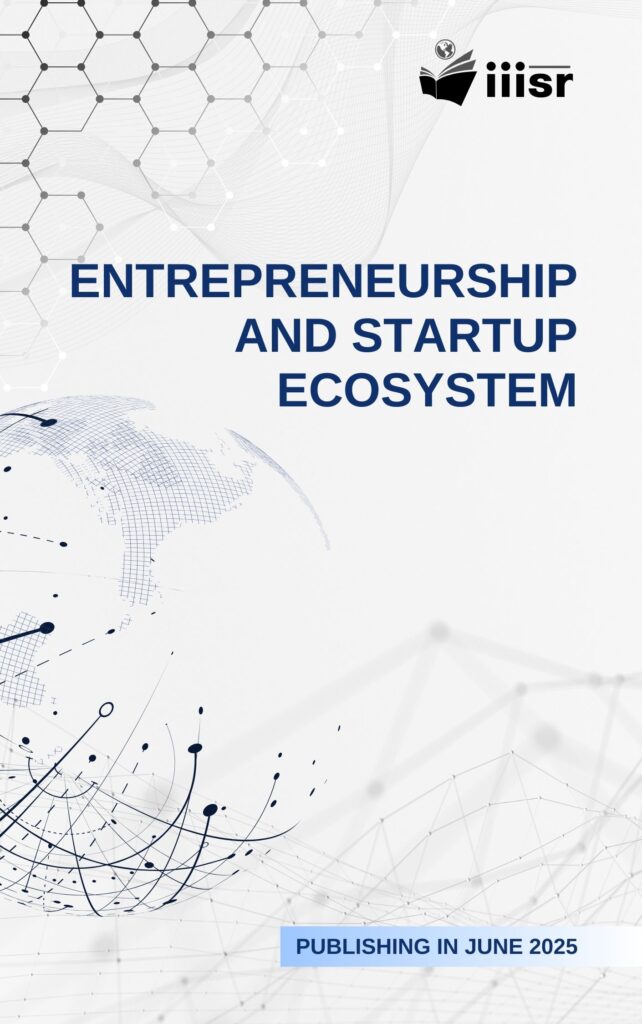Call for Book Chapters: Entrepreneurship and Startup Ecosystem

Proposed Chapters & Themes
Section A: Introduction to Entrepreneurship & Family Business
Chapter 1: Understanding Entrepreneurship
- Definition and Evolution of Entrepreneurship
- Importance in the Modern Economy
- Entrepreneurial Mindset and Traits
- Innovation vs. Imitation in Entrepreneurship
Chapter 2: Classification and Role of Entrepreneurs
- Types of Entrepreneurs: Innovators, Imitators, Drone, Fabian
- Social, Serial, Corporate, and Lifestyle Entrepreneurs
- Women Entrepreneurs in India
- Contribution of Entrepreneurs to Economic Development
Chapter 3: Family Business in India
- What is a Family Business?
- Features and Challenges of Family Business
- Comparison: Family Business vs. Entrepreneurial Venture
- Case Studies: Murugappa Group, Dabur, Wadia, Godrej, Kirloskar
- Succession Planning in Family Businesses
Section B: Evaluating Business Opportunity
Chapter 4: Sources of Business Ideas
- Internal vs. External Sources
- Trends, Consumer Pain Points, and Innovation
- Brainstorming Techniques and Idea Screening
Chapter 5: Opportunity Recognition & Market Potential
- Criteria for Evaluating Opportunities
- Techniques for Market Sizing and Guesstimation
- Understanding Target Market and Segmentation
Chapter 6: Feasibility and Environment Analysis
- Technical, Economic, Legal, and Operational Feasibility
- SWOT Analysis
- Industry Analysis: Porter’s Five Forces
- Competitor Analysis and Strategic Positioning
- Environmental Scanning
Section C: Building Blocks of Starting Ventures
Chapter 7: Low-Cost Marketing and Digital Tools
- Basics of Digital Marketing
- Social Media Marketing on a Budget
- Influencer and Content Marketing for Startups
- Growth Hacking Techniques
Chapter 8: Team Building and Startup Culture
- Hiring the First Employees
- Defining Roles and Responsibilities
- Building a Company Culture
- Motivating and Managing a Startup Team
Chapter 9: Venture Funding & Financing Models
- Stages of Startup Funding
- Bootstrapping, Seed Funding, and Series Rounds
- Pitching to Investors
- Financial Projections and Valuation
Chapter 10: Operations and Value Chain Management
- Designing the Value Chain
- Managing Supply Chain and Logistics
- Lean Operations and Cost Control
- Technology Tools for Operations
Chapter 11: Legal Aspects and IPR
- Basics of Company Registration and Business Structures
- Regulatory Compliance and Licenses
- Intellectual Property Rights: Patents, Copyrights, Trademarks
- Startup Legal Mistakes to Avoid
Section D: Startup Ecosystem
Chapter 12: The Startup Ecosystem
- Definition and Elements of the Ecosystem
- Roles of Incubators and Accelerators
- Co-working Spaces, Startup Hubs, and Networking Events
Chapter 13: Funding Landscape in India
- Angel Investors and Venture Capital
- Government Funding Initiatives
- Role of Banks, NBFCs, and CSR Initiatives
Chapter 14: Government Schemes for Startups
- Start-up India
- Digital India
- MSME Development Schemes
- Atal Innovation Mission and Others
Chapter 15: Technology and IP Management
- Role of Technology in Scaling Startups
- Managing Innovation
- Protecting IP and Commercializing Technology
For Book Chapter Submission Specifications, click here
